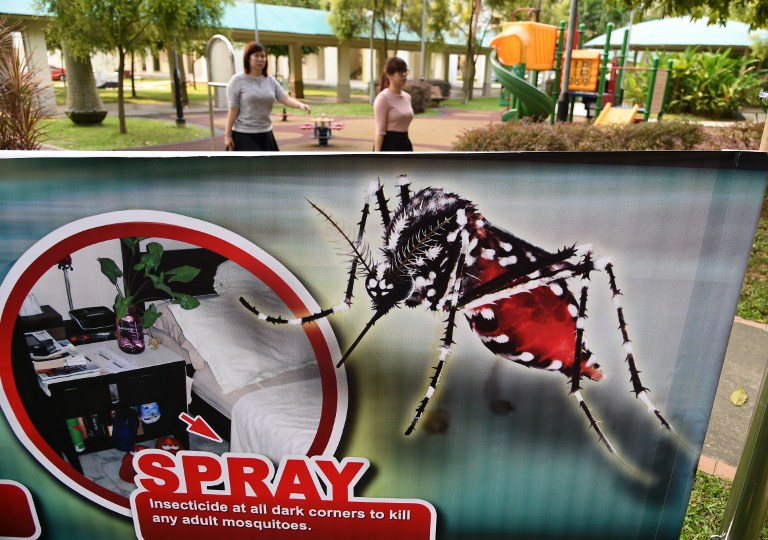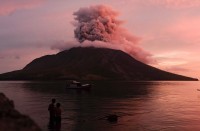
Singapore on August 28 confirmed 41 locally transmitted cases of the Zika virus, which can cause deformities in unborn babies, and said more infections are likely. / AFP PHOTO / ROSLAN RAHMAN
Singapore, Singapore (AFP) – The number of Zika cases in Singapore has surged to 82, the government said Tuesday, as the mosquito-fighting effort continued in a bid to curb the spread of the disease.
Singapore’s Ministry of Health and National Environment Agency confirmed 26 new local infections — the majority around the eastern Aljunied suburb where most of the other cases have been clustered.
Many of the initial cases were foreign workers on a condominium project.
Zika, which has been detected in 58 countries and particularly Brazil, causes only mild symptoms for most people, such as fever and a rash.
But in pregnant women, Zika can cause microcephaly, a deformation in which babies are born with abnormally small brains and heads.
The city-state has in recent days waged war on mosquitoes, with teams of NEA inspectors visiting homes to check for mosquito breeding sites while pest controllers have saturated affected estates with insecticide.
The NEA said it had inspected 5,000 out of 6,000 homes in the affected cluster by Monday, destroying 39 breeding sites.
Those found with mosquito breeding sites in their homes can be fined up to Sg$5,000 ($3,700).
Singapore, despite having the highest health care standards in Southeast Asia, is a densely populated tropical island with frequent rain. Mosquitoes breed in stagnant water that collects in construction sites, open space and homes.
It is also one of Asia’s cleanest cities but has a chronic problem with dengue fever, which is spread by the same Aedes mosquito that carries the Zika virus.
Singapore’s first reported case of Zika in May involved a man who had visited Sao Paulo in Brazil earlier in the year.
Neighbouring countries such as Malaysia, Indonesia and the Philippines have said they will monitor visitor arrivals from Singapore, while Taiwan and Australia have issued travel advisories warning against travel to the city-state.







